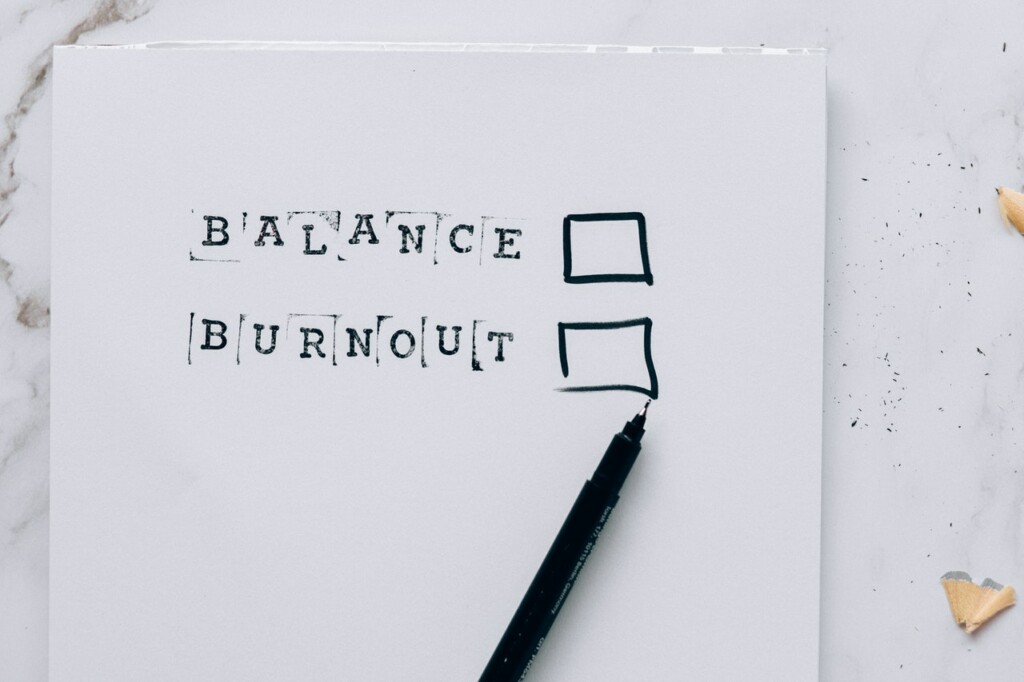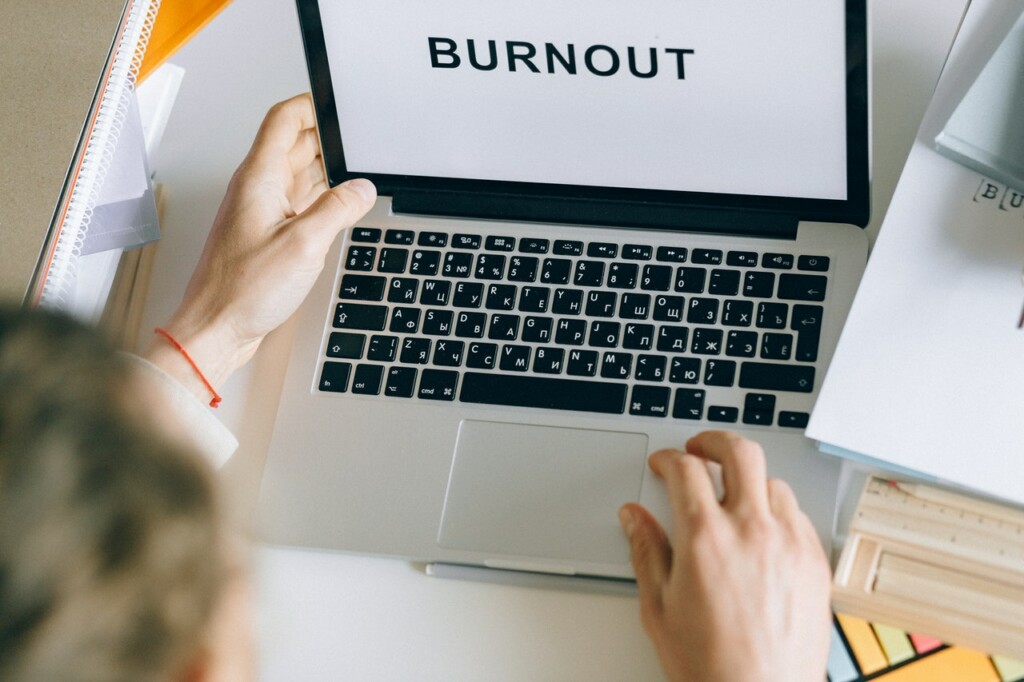
Job burnout is a popular topic right now, for good reason. People are dissatisfied with their work. They feel unengaged, overworked and, like their work doesn’t have greater meaning. The phrase “burnout symptoms” in Google gets about 26 million results. People are struggling.
Officially
Burnout has become such a widespread problem that there’s even an official diagnosis for it. The World Health Organisation classifies burnout in its 11th Revision of the International Classification of Diseases as “a syndrome conceptualised as resulting from chronic workplace stress that has not been successfully managed.”

According to WHO, burnout is defined by “feelings of energy depletion or exhaustion; increased mental distance from one’s job, or feelings of negativism or cynicism related to one’s job; and reduced professional efficacy.”

What’s contributing to this epidemic and how do we mitigate its effects?
- Overwork. Working too many hours, taking on too many projects, or committing too much of your daily energy to your job is a common cause of burnout. If you’re feeling exhausted, or that no matter how much work you do you’re hardly making a dent in your workload, it might be time to dial it back a bit. There is a rock bottom and there is nothing left to give once it is reached.
- Lack of career growth. Businesses can become stagnant and as a result, the prospect of climbing the corporate ladder is no longer relevant. When this happens burnout can soon set in. Your career is languishing and you’re stuck in a role you don’t care about any longer, at an organisation that’s no longer growing. This often leads to feelings of resentment, cynicism, and negativity.
- Dysfunctional workplace dynamics. A toxic working environment can quickly lead to mass burnout among employees. If you’re dealing with daily bullying, negativity, misogynist managers, or creepy coworkers, it’s difficult to stay focused or retain faith in the company you work for. If you’re entrenched in this culture, there’s no way to compartmentalise the negative from the positive—soon it becomes all-consuming.
- Work-life imbalance. When your work-life bleeds into your remaining life, affecting your relationships with your friends and loved ones, you may feel the effects of burnout. While it’s not likely to achieve a perfect work-life balance, it is possible to manage stress in a way that prevents work from overtaking your life and causing you or your family excessive stress.
- Monotony. Are you performing the same tasks every day, every week or every month? Monotony can be mind-numbing and eventually takes a toll on how we view our role in relation to our organisation’s goals. Long periods of repetitiveness and a lack of variation or challenges can lead to burnout, fast.
- A lack of results. This is when you’re putting in the work and doing your best to achieve certain outcomes, but either you’re unable to meet expectations or simply unable to adequately measure your work’s impact on the business. This can lead to the feeling that your part in the company or business doesn’t matter, which can become a self-fulfilling prophecy and a major cause of burnout.

Some of the real symptoms those with burnout may experience:
- Physical and emotional exhaustion
- Headaches or stomach aches and/or intestinal pain
- Reduced creativity
- Depression
- Chest pains
- Increased susceptibility to illness
- Difficulty sleeping and/or eating properly
Support, connection and healthy habits
Reach out to someone close to you and let them know how you’re feeling, share the emotional and physical strain and allow others to hold you up when you feel down. This may be through a psychologist or therapist. Sometimes it is easier to be open with a trained stranger than with the people closest to us.
Often the act of forming relationships with people around you can give you a renewed sense of perspective and that can make all the difference. Remember: you’re not as isolated and alone as you might think so build the structures to avoid feeling like you are.
There is a whole life to be lived outside of the 9-5 and it is extremely important to keep your work hours in check to avoid losing out on investing time in other meaningful activities. Perhaps you have a passion project, a side hustle or a craft you would like to start, use the time outside of work to do these things. Make sure to prioritise them as significantly as your work.
Far too often we allow the time outside of work to become meaningless and mundane. We no longer see opportunity and productivity in these hours but rather laziness because we deserve the break. Taking a break can look like more than lying on the couch watching a series for 2 or 3 hours. It can be: a long walk listening to a podcast of interest, baking or cooking, bathing with your toddler and blowing bubbles underwater or soaking in the last rays of sunshine for the day onto your bare skin. Anything that gives you a real change of pace and feeds your heart and soul can protect you from burning out.

Avoid tech in your off-hours because most of us spend the majority of our work time on devices and screens. We are surrounded by artificial lighting, artificial air and artificial vision. To become grounded again, we need to detach from these things and immerse ourselves in the real, tangible and natural world. Allowing your eyes to adapt to the blue skies and the leaves on the trees, breathing in the smells of nature, being barefoot in the rain or anything that takes you offline can give you relief from stress and minimises the daily work tolls.
Sleep contributes massively to our ability to cope with daily circumstances from family life to work life and choosing our pleasures. We need 7-8 hours of good sleep per night to function optimally and support ourselves before we can support others. Any of the above burnout factors will be harder to deal with if you are lacking sleep hours from the night prior. This is the time the brain needs to clean up, recover and repower for a new day. Never underestimate the importance of this tool.
Burnout is an epidemic in modern workplaces and it’s a disheartening struggle. Feeling empty about your job and purpose in life is not to be taken lightly, but you can find ways forward with the knowledge that you are ultimately in full control of your own life. If you’re feeling burned out, do not hesitate to act on it rather sooner than later. Talk to a professional if need be. Keep in mind that you’re more than your work, and you don’t deserve to be consumed by a negative experience.









2 Replies to Burnout is more than just a fad
Why your child should have a tutor
Conrati nominated as a Top Environmental Consulting Company by Futurology
14 Ways to fight anxiety
How to practice mindfulness each day
How to boost 8 different forms of health
Conrati nominated as a Top Environmental Consulting Company by Futurology
How social media affects mental health
Understanding Bipolar Disorder